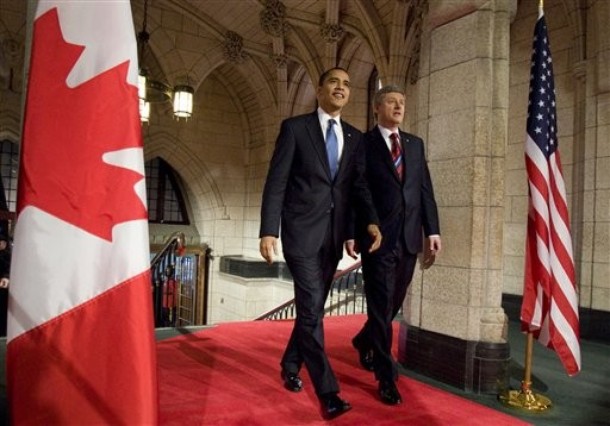Canada: Great Power or Smart Power

If you haven't already done so, you should read this piece in the Globe and Mail from J.L. Granastein that ran on the home page this morning. It tackles the question of why Canada is not a great power:
That matters because great powers see themselves as mission-oriented. Sometimes, they play imperialist as Britain and France did. Sometimes, they seek global domination as Germany and the Soviet Union did. Sometimes, they aim to spread their capitalist/democratic vision of the world, as Washington does. But they all had or have a vision of the world they want. Canadians can't even agree on the kind of nation – or deux nations – that they desire. It's difficult to tell the world how to act in such circumstances, and Canadian moralizing that “the world needs more Canada” can only be a poor substitute.
I think the notion the Washington assumed "great power" status for the purpose of spreading democracy and capitalism obscures an important reality. America acquired great power from a variety of sources, not least was that it avoided the steep costs of having two World Wars fought on its soil. When WWII ended, we understood that the gains from that war would be lost if the Soviet Union swallowed up the weak but pivotal states in its wake. We then undertook a massive military and diplomatic program to check the Soviet Union, which in turn propelled the U.S. into the great power we see before us.
But the point is that America took on this role for largely defensive reasons. The missionary zeal for capitalism and democracy was always latent, as champions of that zeal have argued, but it became a central rationale only when the defensive one (the Soviet Union) collapsed. This, I think, explains why America's post Cold War foreign policy looks both rudderless and reckless.
The purpose of a country's foreign policy is to ensure an international environment conducive to the security and prosperity of its people. Powers that take on missions beyond that scope - or define their security needs so broadly as to constantly put them in conflict with other nations - burn out. Literally. Look at the great powers listed by Granastein: all fell from their perch after extraordinary violence (the Soviet Union "collapsed" peacefully but only after six decades of constant conflict, and bloodshed, with the West).
It's important to have "great power" insofar as it affords you security and prosperity. But it is very difficult to acquire great power and not fall prey to the hubris and over-extension that traditionally accompanies, and ultimately undermines, that power. I can understand why a Canadian would look at the trajectory of great powers and say, "thanks, but no thanks." After all, as Granastein goes on to note of Canada: "We are now what we will continue to be – a developed democratic nation-state with a high standard of living, and that is no mean estate."
Far from it.
-----
Photo credit: AP Photos



